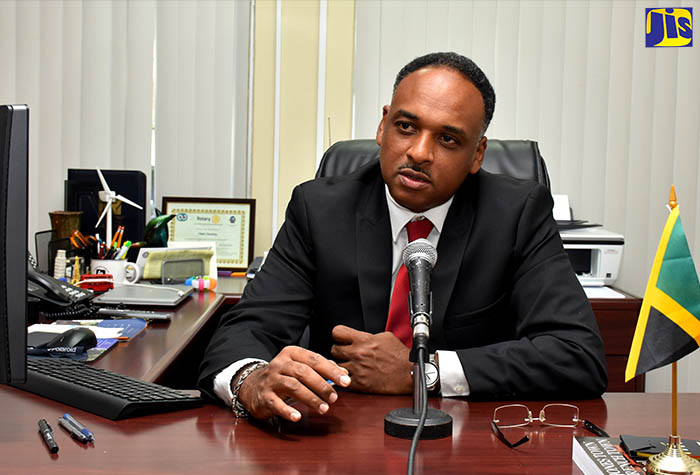Effective Social Interventions can Transform Communities – Sweeney
By: , October 25, 2017The Key Point:
The Facts
- As it relates to youth programmes and training initiatives, Mr. Sweeney informed that “we identified a strong youthful population there, especially within the age range of 15 to 24 years, and a number of youth within the community need to be attached to programmes, whether secondary school, vocational, tertiary, internships and jobs”.
- Mr. Sweeney said the objective of the interventions is to effect change and provide relief to residents. He said the services being delivered will empower people to solve their own problems and, ultimately, uplift their community.
The Full Story
Deputy Chairman, Zones of Special Operations (ZOSOs) Social Intervention Committee, Omar Sweeney, says effective implementation of community-redevelopment, citizen-security and public-safety initiatives can significantly transform vulnerable and volatile communities.
Speaking in a recent JIS ‘Issues and Answers’ interview, Mr. Sweeney pointed out that communities have already been benefiting from social-intervention activities and engagements being undertaken by various government agencies as a means of effecting positive changes.
He said that through the work of the committee, the agencies that are operating in these volatile areas every day “will now have a coordinated approach in providing the intervention that is needed, whether through work on the physical environment, skills and educational development or social services”.
Mr. Sweeney told JIS News that the social-intervention activities being implemented in Mount Salem in St. James, where the first ZOSO is in effect, are expected to serve as the blueprint for similar activities in other areas.
He noted that three major areas of focus were identified for Mount Salem. These are enhancement of the physical environment, youth engagement programmes and civil registration.
In terms of the physical environment, he outlined that initiatives are focused on sanitation, solid-waste removal, utility regularisation, bushing, improving road conditions and street lighting for public safety.
As it relates to youth programmes and training initiatives, Mr. Sweeney informed that “we identified a strong youthful population there, especially within the age range of 15 to 24 years, and a number of youth within the community need to be attached to programmes, whether secondary school, vocational, tertiary, internships and jobs”.
He said that “once we put them in the programme and they have matriculated out of the programme, we say to these entities and employers that we are the reference; I know where this person lives… I know where they come from… I know what they have been trained in”.
Mr. Sweeney added that with this approach, the youth will develop trust and confidence in the system, knowing that their address will not be an inhibitor after they have invested their time and effort in a training programme.
In addition, he noted, they would have seen others in the community getting sustainable jobs and engagements after they have gone through these State-provided programmes.
In terms of civil registration, some of these services were delivered at a two-day community fair, where a number of entities were on hand to process important documents for residents, who also benefited from free medical and dental checks.
The entities included the Registrar General’s Department (RGD), HEART Trust/NTA, National Youth Service (NYS), Ministry of Labour and Social Security, Jamaica Social Investment Fund (JSIF), and the Ministry of National Security and its agencies.
“So, it was about processing birth certificates, passports, voter’s identification, driver’s licence to ensure that persons have proper identification. If we know who you are, if we know your demographics, your personal situation, then we can better serve you and mobilise the type of agencies, or direct you to them,” the Deputy Chairman reasoned.
Mr. Sweeney said the objective of the interventions is to effect change and provide relief to residents. He said the services being delivered will empower people to solve their own problems and, ultimately, uplift their community.
“When you leave a community such as Mount Salem, you want to return and see the community almost empty in the daytime because those people are at jobs, there is good infrastructure, there is social cohesion within the community and there are no zinc-fence structures, but (instead) lines of visibility where you can interact from your home to the street,” Mr. Sweeney noted.
The Social Intervention Committee is charged with developing a sustainable development plan, which will include addressing issues related to health, the environment, social improvement, infrastructural development, education and economic development.
This is in keeping with the clear, hold-and-build strategy aimed at containing crime while safeguarding the rights of citizens and promoting sustainable community development.




